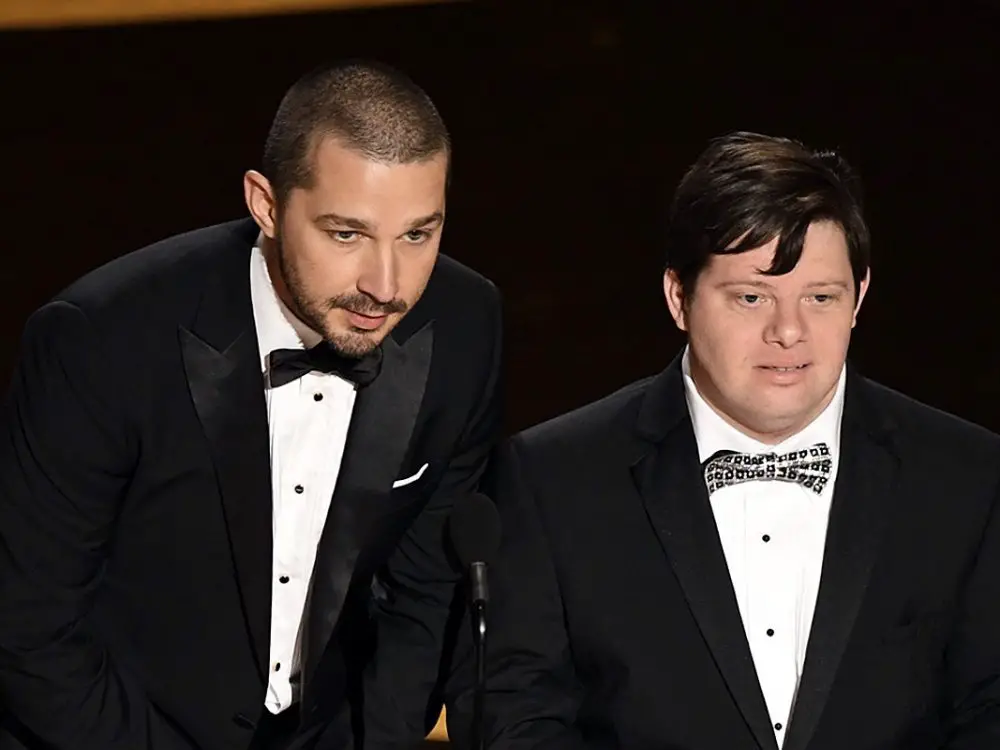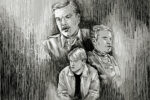When the Oscars aired this year, no one really knew what to expect. Out of all the moments from this year’s Oscars, however, there was one that I found the most surprising: Zack Gottsagen of “Peanut Butter Falcon” fame became the first actor with Down syndrome to present at the Oscars.
Gottsagen, along with his co-star Shia LaBeouf, presented the award for best live action short film. LaBeouf was supportive the whole time Gottesagen was reading the nominees, and I was cheering both of them on. What made this whole thing cool was that LaBeouf only agreed to go on stage on the condition that his co-star was up there with him.
What happened was awesome; however, we still have a very long way to go.
Twitter made a big deal about the Oscars not being diverse enough, with the majority of the nominated actors being white. That is a problem, but there should also be an outcry for people with disabilities. There have only been two actors with disabilities who have won the coveted statue. Marlee Matlin, who is deaf, won for “Children of a Lesser God,” and Harold Russell, who lost both of his hands in World War II, won for “Best Years of Our Lives.”
So why have there not been more Oscar winners with disabilities?
The problem is that Hollywood seems to like films about disabilities more than it likes actors with disabilities. For example, “The Upside,” “Me Before You,” “Rain Man,” “The Theory of Everything” and “Ray” are award-winning movies starring famous, able-bodied actors. Nothing against the actors playing the characters; they are all amazing, but there is so much talent in the disability community, and it seems as though Hollywood cares more about getting famous faces over telling the story from someone who has actually been through it.
Eddie Redmayne and Dustin Hoffman have both received Oscars for their roles playing characters with disabilities. They are both talented, yet still non-disabled actors who played characters with disabilities. Was it because they are better known and hence better for marketing than unknown actors with disabilities? If Hollywood cast someone with a disability in a main role, then it would have a genuine portrayal of the story that they are trying to tell; they are already in character because they have lived it.
“Peanut Butter Falcon” was a breakthrough in Hollywood movies. It even had some Oscar buzz, yet the movie got completely snubbed. While it did win a couple of film festival awards, it has barely been touched at major award shows. There were studios that offered the director money to recast Gottsagen for someone more “marketable,” but thankfully the director refused and took a chance on the unknown actor. That gamble paid off and “Peanut Butter Falcon” became the highest-grossing independent film of the year.
#PeanutButterFalcon co-stars Shia LaBeouf and Zack Gottsagen pose side by side on the #Oscars red carpet pic.twitter.com/RfNFmMsunD
— Variety (@Variety) February 10, 2020
Yes, getting to present at award shows is a big step; however, if Hollywood wants to show viewers that they represent everyone, then they should work on making sure everyone is truly represented, especially when it comes to telling the whole story about someone’s life.
I recently found out that the movie “Christopher Robin” completely erased the fact that Christopher Robin’s daughter had cerebral palsy. Not only would this have been a good time to give kids with disabilities representation in film, but it also could have been a great opportunity to cast a child actor with cerebral palsy, which would have been a first for Disney. This also would have been an amazing opportunity to cast a woman with a disability, since they rarely get screen time. Instead, Disney replaced her with an able-bodied actor.
It is not just about the award shows and the recognition, but also about how the stories are portrayed. The movie “Me Before You” came under fire for the ending scene. Many people believed that the message of the film implied that it is better if people with disabilities are dead because they are a burden to their loved ones.
There is also “The Theory of Everything,” which doesn’t just focus on Stephen Hawking’s disability, but the successful career that he made as well. I will admit that it might be hard to find an actor with ALS willing to do all those scenes because of health reasons, but I would hope they at least talked to someone with the disease or at least spoke to Hawking’s family about it.
There was a lot of backlash for the Oscar-nominated film “Wonder,” in which Jacob Tremblay plays a young boy with a craniofacial condition. The film itself was great; however, it would have been great representation if they cast a kid with that condition.
People with disabilities already have a hard time finding work thanks to discrimination, so Hollywood should not be making it harder for them by casting people who don’t even have a disability in disabled roles. What kind of message is that sending to people with disabilities? That they would rather cast an able-bodied actor rather than someone who is just like them?
There are both good and bad films about disability representation. Sometimes it’s not about who is playing the role; it is about how the role is played. And sometimes it has to be someone who has actually gone through those things.
This is a call for the Academy, the Emmys, the Tonys, the Grammys and any other award shows: There are so many talented actors with disabilities, and it is time they’re noticed and appreciated for what they bring to the table. That one role could open doors to more opportunities for them if you would just give them a chance.
Your move, Hollywood.
















